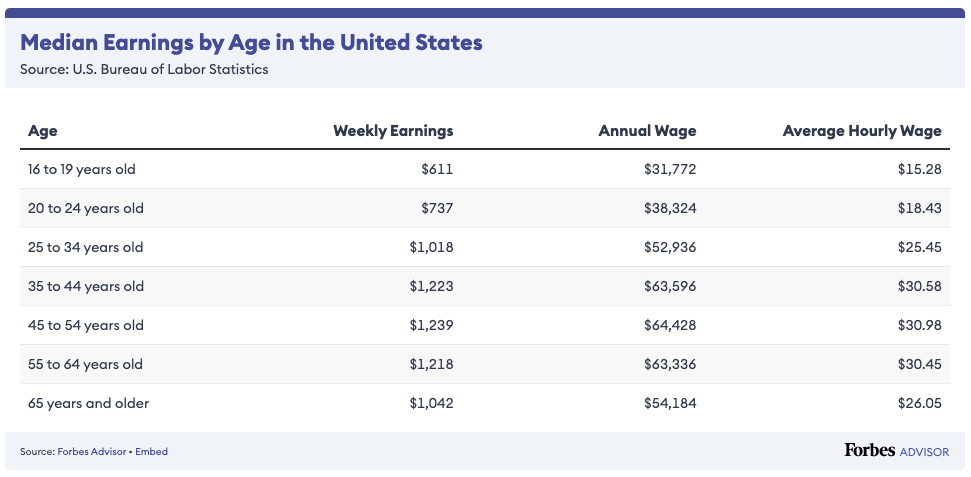Tips for Managing a Multifamily Property
May 22, 2023An Overview of the Chicago Multifamily Market (Q2 2023)
June 5, 2023Undoubtably, each person has their own level of knowledge when it comes to finance and investing. The majority of people ultimately realize they should be investing their money but it seems like such a daunting task at times with the number of investment options ranging from stocks to real estate to businesses. That being said, let us consider a few statistics that Google’s Ai (Bard) provided me from the NY Fed that put things into perspective regarding the general population’s depth of knowledge on financial matters and their financial positions:
- About 12% of Americans invest in commercial real estate. However, only about 3% of Americans own a significant amount of commercial real estate, defined as more than $100,000.
- About 54% of Americans own any stocks. However, only about 12% of Americans own a significant amount of stocks, defined as more than $10,000.
- The average American household has about $106,000 in savings. However, this number varies significantly by income level. The average household in the top 10% of income earners has about $700,000 in savings, while the average household in the bottom 10% of income earners has about $5,000 in savings.
- Only about one-third of Americans have a working understanding of interest rates, mortgage rates and financial risk, according to the Financial Industry Regulatory Authority. And this measure of financial literacy has fallen 19 percent over the past decade. (This is a bonus statistic coming from FINRAs website)
I don’t bring these statistics to your attention to scare you regarding the future of Americans and their ability to save and invest for the future but rather to express the idea that it’s by no means common for people to have a deep understanding of how to invest and just as important, save. More so, considering the amount of money people are making (refer to the table below) and the common practice of scaling up one’s lifestyle as they make more money, it’s not surprising that people don’t realize or care to realize how they can deploy their hard-earned money to work for them. Oftentimes we know that we shouldn’t be buying that expensive car or spending $6 at Starbucks for a single drink but the temptation is great and that is understandable. The dedication and patience someone needs to realize a meaningful amount of cash flow from their investments are dwarfed by the need to feel as though they should live for the moment so to speak. This is all to say that there are many factors that stop people seeking out ways to invest and in this post I want to highlight the factors that hinder someone from choosing or at least acknowledging multifamily syndications as an investment vehicle to achieve financial freedom.

While many people know that you can make money through real estate, the fact of the matter is that the amount of people that even know what multifamily syndications are is very small. While there has certainly been an increase in the number of people that know what syndications are thanks to platforms such as YouTube and BiggerPockets, many people are still left in the dark. On the other hand, awareness regarding stocks and stock-related vehicles (401k’s, Roth IRAs, etc.) is high (compared to real estate options) and most people you talk to will likely have at least some basic knowledge regarding what stocks are especially after the hype regarding the markets during Covid. I believe the lack of awareness regarding multifamily syndications stems from four factors: capital barriers, scale, ease of investing, and education. Prior to jumping into the bulk of this post, I want to note that I make a handful of assumptions based on talking with other operators and business professionals.
Capital Barriers
Consider the people you know in your friend group and ask yourself, ‘of my friends, how many of them have $25-50K to invest at the moment?’. You may be a wealthy individual and scoff at the question I posed and answer it by saying “all of them.” However, I believe the strong majority of people would likely say 1 or 2 friends at best. The facts I brought up earlier suggest I am not wrong in thinking that most people simply do not have the money required to invest in a multifamily syndication. The minimum amount of capital you can invest for most sophisticated real estate syndication firms is $50,000 and that is no small number. This being the case, how could we expect that people would be talking so freely about syndications as they do about other investment vehicles like stocks considering the financial barriers? It seems like a given to me, although I admit I may be naive, that due to the high barrier to entry into syndications that most people/investors wouldn’t even think about searching ways they could pool money with others to purchase an apartment building (this is what a syndication is at the most basic level). Furthermore, given how common and easy it is for people to invest through their employer, I suspect that the idea that investing in other assets besides stocks doesn’t even cross the majority of people’s minds. I feel as though I’ve belabored the point that the capital commitment required to invest in real estate syndications is simply too much for most to handle. Although, once again, I’ll reiterate that I may be naive but after talking to many potential investors in addition to reviewing the statistics on saving and investing, I don’t think many people would disagree with my line of thinking in this section of the post. To put it simple, it takes money to make money in apartment building investing.
Scale
I think it’s fair to say that if someone has not been exposed to owning a multifamily either directly or through someone they are close with, they are more likely to think owning more than a single-family home is daunting. I found myself in that line of thinking just a few years ago prior to partnering up with Jay (President of JP Acquisitions). To illustrate my point, I want to express the mindset I had regarding investing in real estate just 2 short years ago. At the time I had just met Jay and I was fixated on the idea that I would become wealthy by investing in stocks. In addition, I was running a financial blog and majoring in finance at DePaul where I made a conscious effort to talk with my professors regarding the financial markets regularly. Bank then, I would put in countless hours of research and I was seeing the fruits of my labor which had me excited. I knew very little about real estate, let alone commercial real estate, and when Jay expressed his interest in starting a multifamily syndication firm I was taken back to say the least. The idea of raising hundreds of thousands of dollars from friends and family to purchase a multi-unit building went way over my head. Although I was (and still am) very hard headed, Jay had (and still has) some innate ability to communicate and convince people and as a result I found myself slowly drawing back my time spent researching stocks and focusing more on multifamily real estate. What I found to be true was that the more that I was able to wrap my head around multifamily, the more comfortable I got with the sheer scale of an apartment building. I say this story to illustrate the fact that I was one of those people who thought that owning an apartment building was something that only extremely rich people could do. Little did I know, everyday people can have ownership stakes in large properties and it’s a matter of wrapping ones head around the benefits of having more units to get them comfortable. I don’t consider myself to be smarter than anyone else and I truly believe that getting comfortable with the scale of multifamily properties is one of the biggest challenges to getting involved in an apartment syndication.
Ease of Investment & Education
For a moment, think about how easy it is to buy a liquid asset like a stock. Someone simply has to open a brokerage account with one of the many platforms available, get their account approved, and boom they can buy an ownership stake in a company with just a few clicks. Real estate on the other hand is not a very liquid asset class and as a result, requires a deeper understanding before someone can get involved with it. From simply an investor’s standpoint, this deeper understanding I refer to requires an individual to have at least ‘surface’ knowledge about ownership structures (limited partners, general partners, LLCs, etc.), how apartment buildings operate, real estate valuation, and more. The combination of real estate not being liquid and the amount of education that ensues from this fact creates yet another barrier that hinders awareness of multifamily syndications. The sad reality is that while most people are exposed to stocks at an early age due to how many people are invested in the market and the availability of classes in school that teach people about stocks, education on commercial real estate is lacking. While it’s hard to pin down accurate figures regarding how many people received formal education on stocks versus commercial real estate, having been in university not too long ago I’m inclined to say stocks are far more known and invested in. The bottom line is that it takes conscious effort to educate oneself in apartment building investing and most people are simply not that interested in investing or finance. I know this first hand because when I try to talk about investing in apartment buildings to friends and family, most of their minds tend to wander off the moment I start talking the topic. Perhaps it would be best when talking about the subject to begin with the end in mind (i.e. what someone would be able to do with the cash flow from investing in a multifamily syndication), but I digress. This final section of the post is perhaps the biggest factor that stops people from investing or at least considering investing in multifamily syndications.
Conclusion
All in all, the factors that hinder the awareness of multifamily syndications as an investment vehicle by which someone can generate passive income stem from four factors: capital barriers, scale, ease of investing, and education. As the statistics at the beginning of this post suggest, most people simply do not have the savings at hand to invest in syndications. More so, the idea of owning or being a part owner of a multi-unit building is daunting for many and difficult to wrap one’s head around. To add fuel to the fire, the ease by which someone can invest in a syndication is severely hindered by the very nature of commercial real estate. As a result of the lack of liquidity in the asset class, a fair bit of education needs to take place before an investor can feel comfortable putting their money in a syndication. Compare the liquidity of stocks to that of real estate, investors are more inclined to get involved in the stock market due to how easy it is to invest in the asset class. While awareness of syndications continue to grow, I suspect much of that interest will come from institutions as opposed to regular everyday investors. Be that as it may, thanks to the internet and growing number of multifamily companies opening up, I remain hopeful that more everyday investors will open their eyes to the benefits of multifamily syndications.
If you have any questions regarding the terms and concepts in this post or previous ones, don’t hesitate to reach out to either me (tedi.nati@jpacq.com) or someone on our team so we can help explain what is causing the confusion. If you’re interested in investing with us at JP Acquisitions, you can contact us via email (contact@jpacq.com), LinkedIn, Instagram, or our investor portal to set up a meeting.
As always, I hope you enjoyed reading this post as much as I have writing it. Best of luck!



